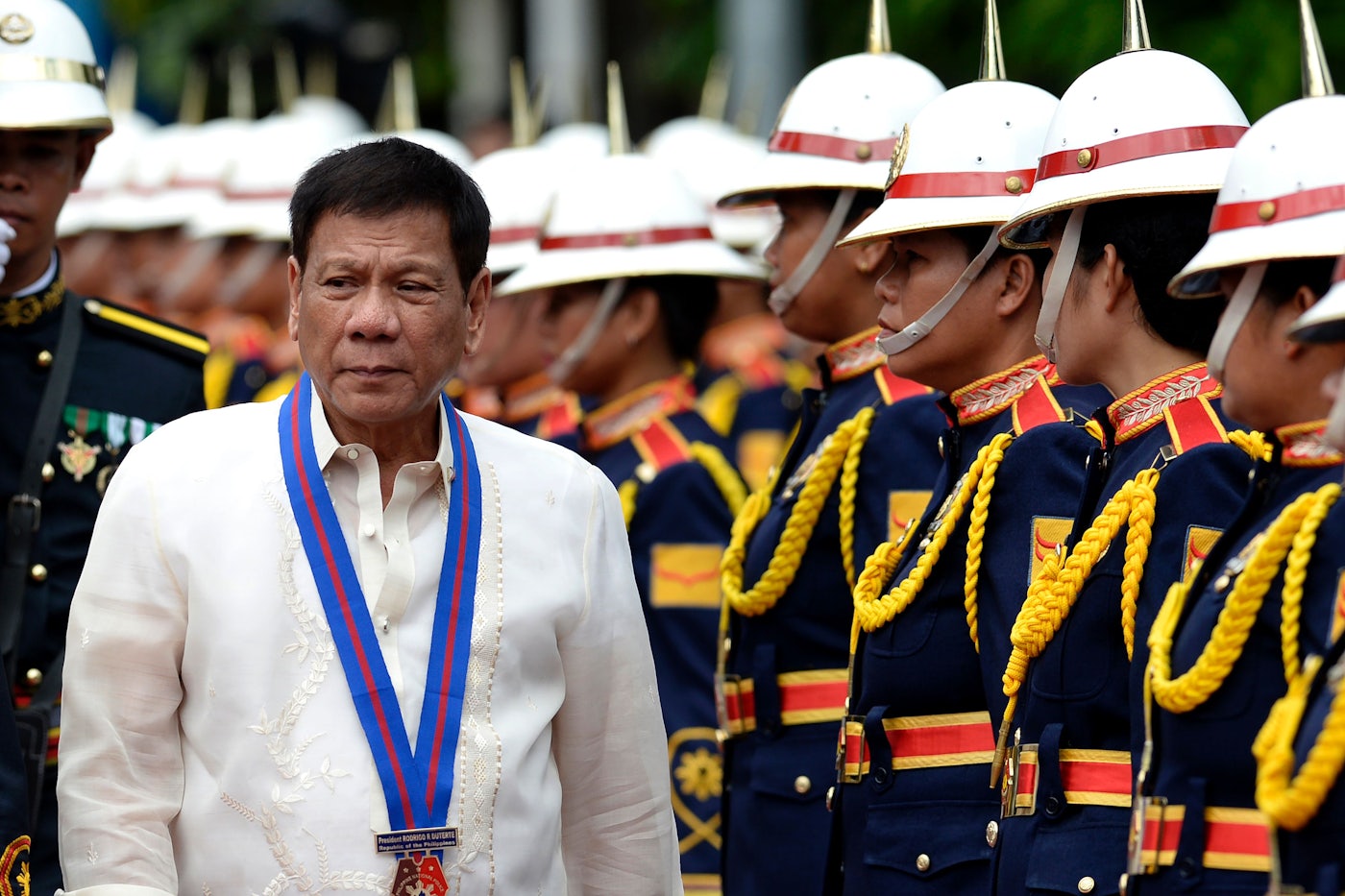Course Themes
1. Show how propaganda elevates the emotional over the rational in an effort to persuade or manipulate people.
2. What helps explains radicalization of individuals, political movements, and government institutions?
34 years ago, the people of the Philippines rallied behind a movement known as "People Power" to overthrow the dictator, Ferdinand Marcos. It continued with Joseph Estrada - who was kicked out of office following mass claims of corruption - as well as Gloria Arroyo - who was imprisoned following her own corruption charges. This action that targeted unjust government officials and presidents - who generation after generation arose from wealthy elites, dominating Philippine politics - was a hopeful sign for the future of the nation. However, the massive success of the current president, Rodrigo Duterte, signals a large setback towards this movement and growth.
The current president of the Philippines resembles many other conservative politicians around the world, and has had his fair share of controversial decisions while in office. For example, the government admits to 6,000 killings from Duterte's iconic "war on drugs," and the actual amount is estimated to be at over 20,000. Basically, while the developing nation struggles to get off its feet, Duterte continues to limit basic human rights through the excuse of combatting drugs. He has also gone under fire from foreign nations and organizations following his denial and downplay of the current COVID-19 outbreak, that is greatly impacting the Philippines. Until just recently, president Duterte refused to even recognize the situation, claiming "it will just die a natural death." However, despite the clear wrongdoings of president Duterte, he is still has a popular within the Philippines, with an 80% approval rating. By comparison, Donald Trump throughout his presidency dropped as low as 40%.
His popularity stems from the many "strongman" tactics he employs amongst his people. Despite being investigated for crimes against humanity by the International Criminal Court, his success demonstrates how populist leaders around the world, including Donald Trump, are able to withstand challenges or crises that would normally end an average politician's career. President Duterte uses social media with the aid of his many followers to harass and shame any opinions or pieces that go against and criticize any of his actions.
The main concern with his popularity is the disturbing re-emergence and success of populist leaders and strongman tactics around the world. Political leaders all around the world, from Donald Trump to President Macron, are creating successful careers, and are re-establishing the effectiveness of strongman propaganda in their political campaigns. As Jayson Lamchek - a researcher at the Asia-Pacific College of Diplomacy in Australia - explains, "so many Filipinos seem willing to squander the spirit of [the People Power movement]... curse human rights and democracy as useless, and turn instead to a strongman to change things."
Discussion Questions
1. What similarities does President Duterte share with President Trump? What are some differences?
2. What other "strongman" tactics are employed by government officials? Why is this problematic?
Source:
The New York Times - The Bumbling Corruption Of Rodrigo Duterte

Some of the other strongman tactics that are employed by government officials would be discrediting others claims. This is seen with President Trump, as he declared the news outlets writing articles against him as fake news. This tactic that is employed by some government officials causes the people to lose their faith in the news industry, although their history of sometimes misrepresenting or twisting the truth about controversial subjects didn't help that much either.
ReplyDelete